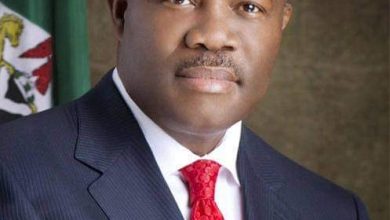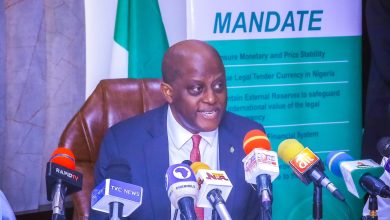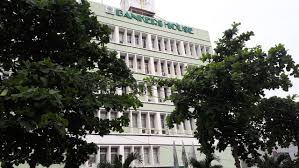Of A CBN Governor’s Speech and A Country’s Growing Realities
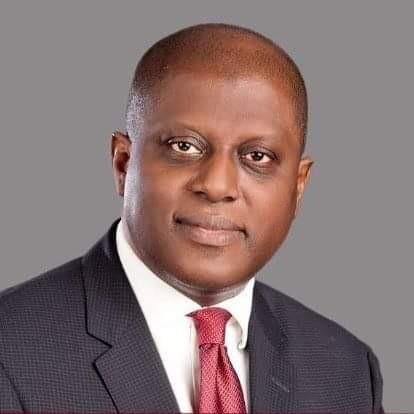
A team of analysts conducted a stakeholder engagement and put together this in response to the signaling by the CBN Governor under seven areas:
- Introduction: Reforms, Policy & Mandates
- Highlights and Gaps of a Monetary Policy Transition
- Inflation Targeting: Shooting Straight Without Missing
- The Liberal FX Market and its Several Headaches
- Beefing up Bank Capital without Taking Banks to Slaughter
- From Growth to Greatness, the US$1trn Question
- Analysts’ Closing Thoughts – The New Look of Monetary Policy
Introduction: Reforms, Policy & Mandates
Nigeria has been at the crossroads of monetary policy drift and fiscal policy indecisiveness in the last nine years. However, since June 2023, the new president, Bola Ahmed Tinubu, seems to have decided that old things have passed and new dealings are on the horizon. The public policy rethinking was captured in an initial eight-point public policy initiative that took a fresh look at monetary and fiscal policy management. The President appeared willing to usher in a new dawn on public policy administration. Indeed, in a speech delivered by the Central Bank of Nigeria (CBN) Governor, Dr Olayemi Cardoso, at an end-of-the-year event of the Chartered Institute of Bankers (CIBN), the Central Bank Governor made it clear that the CBN under the new dispensation would concentrate more on traditional monetary policy goals such as inflation-targetting rather than quasi-fiscal economic interventions.
According to the Governor on page 22 of his address, ‘Our monetary policies will aim to achieve price stability, foster sustainable growth, stabilise the exchange rate of the naira, and reduce interest rates to facilitate borrowing and investments in the real sector‘. Here lies one of the governor’s problems: he cannot achieve these goals simultaneously because they represent the time-worn challenge of an economic trilemma.
To bring inflation to heel, the CBN must raise local interest rates to reduce inflation growth and support price stability; reducing interest rates would do the opposite of the financial regulator’s intention. Furthermore, to strengthen the Naira in the foreign exchange market, the CBN must reduce the domestic money supply, pushing interest rates up and, hopefully, increasing savings in the short to medium term. However, a rise in savings would mean a fall in domestic direct investments. Every kid on the block loves lollipops, but it comes with unhealthy teeth. The candy bag of policies Cardoso desires is nice but cannot be achieved immediately. According to a group of analysts interviewed by Proshare the CBN must sequence its goals and align them with specific policies while accepting the inevitability of tradeoffs.
The new banks’ regulatory boss mentioned on page 24 of his address the goal of growing Nigeria’s economy to a US$1trn emerging market bull. The Governor’s aspirations are commendable and demonstrate the boldness of the CBN team to drag Nigeria to an economic situation that can support a bustling population estimated to be growing at 2.7% per annum. The trouble here is that applying the rule of 70 and assuming that the contemporary gross domestic product (GDP) is US$477.39bn (World Bank figure 2022), the economy would have to grow at a compound average annual rate of 11.14% to achieve the objective. Given the country’s recent GDP growth for Q3 2023 at 2.54%, up from 2.51% in Q2 and 2.31% in Q1 2023, the expected GDP growth to meet the CBN’s aspirations is a hard call. Few people see a potential pathway to achieving the goal, especially given that the country’s major export, crude oil, cannot fulfil the Organization of Petroleum Exporting Countries’ (OPEC’s) last quota of 1.74mbd and the significant downward drag oil theft has placed on the economy. Of course, the naira-to-dollar exchange rate at an average of N770/US$ in the Nigerian Foreign Exchange Market (NAFEM) in 2023 suggests a lower adjusted GDP and the need for higher annual growth. The CBN Governor and the fiscal authorities will need to pull several giant rabbits from their policy hats if the country is to achieve a US$1trn economy in seven years. The gambit is not impossible but improbable.
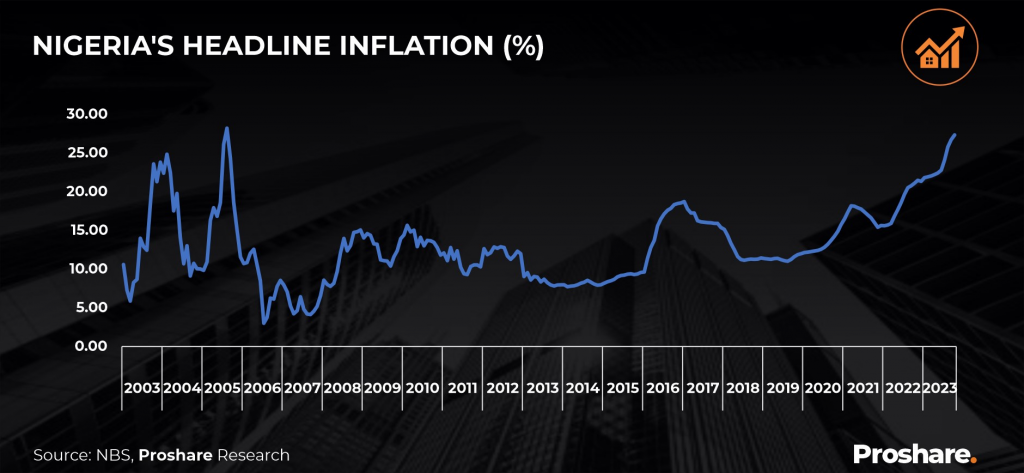
The CBN Governor’s address can be put into a few policy buckets, and some analysts have given their candid views on the address as a basis for guidance, encouragement, and caution.
Proshare analysts equally note that beyond the politics of people is the purpose of policy. If the CBN is to be adequate and fit for the task at hand, it must go beyond the Bank’s personnel to its structure. The bank must break from the old mould of trying to be all things to all men (and women) to become a goal-driven and agile banking system regulator with the mandate to ensure non-inflationary annual gross domestic product (GDP) growth. The federal government should review the British regulatory framework and adopt some revised version of the model to strengthen financial system governance in the country. With banks disappearing into Holding Company structures (Holdcos), the old regulatory framework is not a tidy fit for an evolving financial market where banks become dead, but banking is alive and well. The CBN should be allowed to stay focused on its macroeconomic mandates, and a Financial Conduct Authority should monitor disciplinary and professional conduct practices. In contrast, a third authority should monitor prudential regulation compliance (see illustration 1 below).
Illustration 1:
With the growing interest and footprints in non-interest financial intermediation (Sukuk, Musharaka, Mudaraba, Istina, and so on) and a rise in open banking and neo-bank offerings, the regulatory landscape requires quick and timely readjustments. One Economist notes that ‘a caterpillar turns into a butterfly for a reason. The inevitability of change requires the responsibility of adaptation, not responding to changing conditions usually leads to pain or death or both.’ A dark but valid conclusion.
On the fourth line of page 14 of the CBN Governor’s dinner address, the regulatory chief mentioned the need for banks to recapitalise in light of the recent steady devaluation of the naira and the expectation of the government of the need to fund a larger GDP size and growth rate. The argument is compelling but requires a deeper explanation of the proposed size of the larger bank capital and the period for the recapitalisation either through Mergers and Acquisitions (M&As) (as was the case in 2004) or by taking on strategic new investors or simply converting reserves into new share capital.
Another way of improving bank liquidity and strengthening their operations would be by lowering their cash reserve ratio (CRR) and allowing them to raise their loan book size carefully. Nigeria’s CRR is one of the highest in the world. The problem here is that with a hawkish Central Bank bent on containing inflation, a lower CRR may be difficult to stomach. Even at that, the whole recapitalisation proposition has been questioned.
According to a Chief Financial Officer (CFO) of a deposit money bank (DMB) that recently gobbled up a local rival, ‘A forced and hasty consolidation of the banking system will not augur well for the industry and the economy. In addition, the CBN needs to come up with a clear framework for the recapitalisation of the banks and must give adequate time for the conclusion of the process. Hastening the banks again will lead us to the sad experiences of the Soludo model in 2005. The capitalisation exercise should be programmed along the same timeframe since the $1 trillion economy is projected over the next 8 years. The operating environment, monetary, and fiscal policies must be reformed to attract foreign capital importation to avoid further decrease in the number of banks and scope of operation. Nigeria is still underbanked.’
Highlights and Gaps of a Monetary Policy Transition
In reviewing the CBN Governors, CIBN November 2023 Dinner analysts have highlighted a few vital issues and gaps:
- The speech explicitly identified that the CBN will focus on inflation-targeting as a tightening measure. However, the contradiction lies in the aggressive tightening, including high-interest rates, which may hinder the expected increase in GDP growth. Economic policy trilemma suggests that reducing inflation and stabilising the exchange rate may conflict with lowering interest rates. As a prominent analyst put it, ‘These aggressive tightening measures will end up turbo-charging interest rates, thereby shrinking credit to the real sectors of the economy and are therefore inconsistent with his expectation of “an increase in the GDP growth rate to 3.97% in the fourth quarter” of 2023.’ Hence, the policy stance opens a gap between tightening measures and stimulating economic growth.
- Analysts argue that the speech signals the intent of the new leadership of the CBN to refocus the regulator and promote further developments in the payment and settlement landscape. Still, it missed the opportunity to promote the eNaira and disclose its position on other extant Bank projects, including InfraCo and the RT200 programme. A market opinion moulder observes, ‘ Much as the plan to refocus the CBN is laudable, every effort should be made not to throw away the baby with the bath water.’
- The speech equally cited the low unemployment figures of Brazil (7.8%), Mexico (3.1%), and Indonesia (5.4%) as examples of countries with unemployment figures that Nigeria should aspire to achieve. This statement contradicts the NBS’s new methodology and its latest unemployment figure of 4.1% which is below that of Brazil and Indonesia. CBN must not be inconsistent with the NBS. There should be alignment between the CBN research output and the NBS data.
- One of the positive highlights from the Cardoso-led CBN speech emphasises the importance of giving visibility to human condition data as with macroeconomic data. Analysts say this should guide future monetary and fiscal policies to ensure economic progress benefits the masses and improves their dire conditions.
- The speech hinted at the need for the banks to brace for recapitalisation, considering the significant loss in the value of the current capitalisation and the capital required for the envisioned US$1trn economy. Analysts say the approach should instead be of incentives and not coercion. With the strong performance of the banking sector in the market, which suggests an attractive return on the banking index, there seems not to be a concern for the bigger banks as investors would willingly commit resources, given the lucrative opportunities in the sector. The concern, however, is on smaller banks that may have to consider alternative options. An industry expert says the CBN can use prudential guidelines to strengthen tiered arrangements. The use of the CAR (the ratio of a Bank’s capital to risk-weighted assets) is a good example. The Apex Bank can also use differential cash reserve requirements and preferential participation in the forex market for well-capitalised banks as some of the incentives. Generally, there is an obvious need to avoid regulating smaller banks out of existence (especially those operating at the regional level) and promoting an oligopoly in the banking system.
Inflation Targeting: Shooting Straight Without Missing
Following the CBN signaling on inflation targeting policy, essentially going back to basics, analysts have raised concerns about the approach and commitment to the policy. The premise behind inflation targeting globally is straightforward. Monetary authorities aim to guide economic agents’ expectations and behaviour by establishing a clear and measurable inflation goal, fostering stability and preventing mission drift. However, a critical examination of Nigeria’s economic landscape suggests that the current approach to inflation targeting has not been the most suitable path.
One primary concern is the quality of Nigeria’s inflation data. Inflation targeting relies heavily on accurate and timely inflation figures to make informed policy decisions. Unfortunately, Nigeria’s inflation data may not meet the necessary standards to support such a framework. A professor of economics put it right: the quality of Nigeria’s data on inflation does not support inflation targeting; the current approach via monetary aggregate is preferable within the current context.
The theoretical preference for a single-digit inflation rate in Nigeria, defined as less than 10% by past monetary authorities, aligns with the idea that moderate inflation can be conducive to economic growth. However, the challenge lies in the actual achievement of this target. Nigeria has struggled to keep inflation within single digits, raising questions about the effectiveness of inflation targeting in the current economic environment. Nonetheless, analysts like Dr Adedipe argued that the CBN should realistically set the target at 15% for the near term (2024) and 6-9% in the medium term and going forward (2025 and beyond).
The argument against inflation targeting goes beyond numerical thresholds. Economic performance depends on many factors, and a double-digit inflation rate does not necessarily imply poor economic health. Prof Ekpo has argued, ‘ An economy may have double-digit inflation, yet economic performance may be satisfactory. It depends on other economic fundamentals. Inflation targeting is not necessary. Ghana and South Africa have been on inflation targeting, yet there is no significant impact on their economies. This questions the universal applicability of the strategy.
A key factor in moderating inflation may lie in the money supply growth. Utilising instruments within the money supply framework could provide an effective means of controlling inflation. However, it is essential to recognise the nuanced nature of inflation in Nigeria, stemming from cost-push factors, supply chain issues, and exchange rate pass-throughs. Simply hiking interest rates, such as the Monetary Policy Rate (MPR, currently at 18.75%), may not be the panacea, especially when real interest rates are already negative. Instead, a more comprehensive approach could be explored, including adjusting savings rates to encourage investments.
The consensus among financial analysts is that the CBN’s return to the basics of monetary policy targeting must be explicit on commitment and approach. Dr Adedipe placed it in proper perspective when he observed that, ‘Year-in and year-out, inflation targets must be set, along with consequences for missing the target. This singleness of focus should prevent the apex bank from going on mission drift’.
The Liberal FX Market and its Several Headaches
The CBN Governor’s speech suggests that the regulator has set a clear target to improve FX liquidity, clear backlog, and stabilise the Naira to the dollar rate. Without further details on the commitment to reform the FX market, analysts say the CBN may stick with its extant liberalisation or introduce new sets of FX laws and guidelines that may not totally deviate from the status quo. One Tier 11 banker noted that Clearing the outstanding FX forwards is just one small part of what needs to be done to restore investor confidence in the Nigerian economy. Nigerians have no confidence in the Nigerian economy, and unless that confidence is restored, seeking foreign investor confidence will be elusive.
The liberalisation of FX markets in any economy ushers economic opportunities and exposes such a nation to various challenges, particularly when confronted with structural issues and a strong US dollar. The decision to stabilise the exchange rate by providing transparency and creating a market environment that allows fair determination of exchange rates may not hold water in Nigeria’s lack of productivity, weak trade values, and strong US dollar. In the words of Prof Akpan Ekpo, external shocks hurt the economy… The mistake was to open the forex market. It is not a well-behaved competitive market. I still argue for a managed float until the economy becomes productive and earns forex by exporting non-oil goods and services. The supply of dollars is inadequate; the demand exceeds the supply, and the major supply source is the export of crude petroleum. Remember, the Naira is not a convertible currency.
On his part, Dr Abiodun Adedipe, Chief Consultant, BAA Consult, noted that the key to dealing with the implied vulnerability is to strengthen and deepen manufacturing value-added, whereby the volume of imports (absolutely and relative to the GDP) will not matter as much as the volume that is value-converted to exports. The crux of addressing the vulnerability induced by a strong US dollar is strengthening and expanding manufacturing value-added capabilities for trade. This shifts the emphasis from mere trade balances to creating value within the country’s borders and insulates the economy from the fluctuations of global currencies.
China’s dominance in basic manufacturing provides it with a certain level of insulation from the volatility of the US dollar. Similarly, countries like Ukraine, Indonesia, India, and the UAE have identified and anchored their economies to specific sectors – wheat, palm oil, non-basmati rice, and tourism, respectively. These “anchors” act as buffers that ensure a more stable external sector driving valuable exports. Countries lacking systemic anchors grapple with the repercussions of a strong US dollar and supply chain disruptions.
Beefing up Bank Capital without Taking Banks to Slaughter
At the recently held Proshare Tier 1 Banks Report launch in October 2023, financial market operators called for bank recapitalisation to strengthen the financial system’s integrity and support faster-paced economic growth. The conversation around recapitalisation was a vital issue mentioned by Mr Johnson Chukwu, Chief Executive Officer of Cowry Asset Managers, who argued that ‘Nigerian banks are under capital pressure to meet the needs of their corporate customers to fund growth and big-ticket deals the economy has opened, primarily due to the exchange rate conundrum. Banks now have a compelling need beyond increasing liability to increase operating assets and, consequently, liquidity. Two factors drive the new need for recapitalisation: economic inconsistency and accruable income to investors.’
The signalling by the banking regulator to recapitalise banks has sparked debates on the most effective approach to strengthening the financial sector without causing unintended disruptions, especially in the current economic climate. While the CBN Governor emphasised the necessity of recapitalisation to support the envisioned US$1trn GDP growth, there is a consensus that a careful and incentive-driven strategy is essential to avoid adverse consequences such as mergers and acquisitions leading to unemployment.
Prof Ekpo noted, ‘It is unhealthy to force banks to recapitalise. What should be done is to create incentives for banks wishing to recapitalise; forcing them would result in mergers and acquisitions, leading to unemployment. Banks have varied customers; recapitalisation would not stabilise the banking industry, especially now that the economy is in its worst shape – worse than a depression, perhaps in an austerity phase. Hence, why create further uncertainty?
The erosion of Naira assets due to significant currency devaluation has been pointed out as a compelling reason for banks to consider recapitalisation. However, the timing and methodology of such an exercise are crucial. One senior bank executive who requested anonymity observed that ‘No doubt, recapitalisation will enhance the capacity of the banks to do larger ticket transactions, but that should not be made an immediate priority. I suggest looking at 2025 onwards to allow the banking system and the economy to settle nicely into the recent policy shifts.’ The suggestion to look to 2025 or later for banks’ recapitalisation allows banks sufficient time to explore alternative approaches to capital raise.
A prominent bank executive who requested anonymity called for caution. In his opinion, ‘With the massive devaluation of the Naira by over 98% (approximately N461/$ in December 2022 to N915/$ in November 2023) the ability of the Nigerian banks to withstand shocks and provide cushion for risk has been weakened. So, the push for recapitalisation is strange to me. However, the initiative should be pursued with care and caution. A forced and hasty banking system consolidation will not augur well for the industry and the economy. In addition, the CBN needs to come up with a clear framework for the recapitalisation of the banks and must give adequate time for the conclusion of the process. Hastening the banks again will lead us to the sad experiences of the Soludo model in 2005. The capitalisation exercise should be programmed along the same timeframe since the $1 trillion economy is projected over the next 8 years. The operating environment, monetary, and fiscal policies must be reformed to attract foreign capital importation to avoid further decrease in the number of banks and scope of operation. Nigeria is still underbanked.’
The idea of recapitalisation itself is widely acknowledged as crucial for financing substantial projects, particularly the $1trn economy. The experience of 2005, where a recapitalisation exercise revitalised the stock market, serves as a precedent for the positive impact such measures can have on the financial system. However, a shift in strategy is needed, leaning towards incentivising banks rather than coercing them into recapitalisation. The focus should extend beyond the present financial stability and evaluate the adequacy of the banking industry to serve the envisioned long-term development plan. According to Mr Tilewa Adebajo of CFG Advisory, ‘We must evaluate the adequacy of our banking industry to serve the envisioned larger economy. It is not just about the financial system’s stability in the present moment, as we have already established that the current assessment shows stability. However, we need to ask ourselves: Will Nigerian banks have sufficient capital relative to the financial system’s needs in servicing a $1.0trn economy in the near future? I believe the answer is “No!” unless we take action. Therefore, we must make difficult decisions regarding capital adequacy.’
He further observed that ‘Nigeria’s financial sector has demonstrated resilience in 2023, with key financial soundness indicators largely meeting regulatory benchmarks. Stress tests conducted on the banking industry also indicate its strength under mild-to-moderate scenarios of sustained economic and financial stress. However, there is room for further strengthening and enhancing resilience to shocks. Therefore, much work must be done to fortify the industry for future challenges.’
From Growth to Greatness, the US$1trn Question
The quest for economic greatness and the aspiration to achieve a $1trn GDP within the next seven years has ignited a crucial conversation about the structural shifts needed to achieve the envisioned growth.
Analysts and industry experts say the focus should centre on transforming the manufacturing subsector, a key driver among the 46 sectors of the GDP, to realise the ambitious target. While manufacturing has contributed around 10% to the country’s GDP over the last half a century, it is considered a growth driver whose share of output needs to be increased to at least 30%. This shift requires a productive economic structure that facilitates sustained growth.
However, achieving this milestone is not solely about the numbers; it’s about creating a sustainable and well-managed growth trajectory that avoids currency devaluation. The path to the US$1trn economy must address the structural issues plaguing the business registration and regulation, energy, and transportation infrastructure. If left unaddressed, these foundational challenges could impede progress and make the journey toward the trillion-dollar economy rough and filled with potholes.
A thought-provoking alternative emerges from Mr. Foluso Phillips, Chairman of Philips Consulting, who noted that if a substantial portion of the informal economy is formalised and the Nigerian economy is rebased correctly, the US$1trn mark may already be within reach. Regardless of the specific figure, analysts say the declared target is a motivational rallying point for a whole-of-government approach to boosting the economy. The call to action is clear – “all hands on deck” to achieve national strategic goals and propel the economy from growth to greatness.
Analysts’ Closing Thoughts – The New Look of Monetary Policy
The evolution of monetary policy in Nigeria is taking on a new look, marked by a reevaluation of the CBn’s role in developmental functions and a renewed focus on its core mandate of ensuring price stability. The speech by the CBN Governor sparked discussions about the apparent conflict between ceasing special intervention funding and simultaneously expressing a commitment to assisting SMEs with lower-cost capital. The call for a more selective approach to development functions, particularly in supporting SMEs, reflects a shift from the previous administration’s comprehensive involvement in various sectors. The argument emphasises the importance of aligning the institutions’s activities with its primary goal of maintaining price stability. Rising inflation, especially detrimental to the poor, necessitates a moderation of inflation rates. While recognising the need for the Bank to address the human condition through its developmental functions, there is a call for selectivity to avoid overextension.
This apparent conflict is clarified as a shift in instruments rather than objectives. The overarching goal of driving inclusive growth through supporting MSMEs remains. Still, achieving it is now envisioned as a function better handled by commercial and Microfinance banks with the necessary capacity and expertise. A banker who requested anonymity argued, ‘In truth, the CBN has no business with intervention in the fiscal space. What we have seen in the past 8 years is an aberration, and I think it is because of the void created by the leadership style of the immediate past President of the Federal Republic of Nigeria. He failed to coordinate the various arms of government, ministries, and parastatals. So, everyone was doing what he/she thinks is right. To the extent that there is a clear path to the transition of the CBN from playing in the fiscal space to focusing only on complimentary monetary policies, I see no serious threat of social dislocation. We need CBN to be transparent as to how it plans to handle existing intervention loans it granted through the Real Sector Support Facilities (RSSF) in the agriculture and manufacturing sector, as well as eliminating discretionary Cash Reserve Ratio (CRR) debits which can only be explained as means of raising free funding for these interventions in the fiscal space.’
A crucial aspect of the new monetary policy outlook involves the management of money supply growth and interest rates. The dilemma faced by the CBN Governor regarding a potential rate hike and GDP growth reflects the inherent tradeoff between these two macroeconomic objectives. The decision on prioritising either objective is complex; the current interest rate of 18.75% compared to the inflation rate of 27.33% suggests an interest rate increase to incentivise investments. However, this move could raise borrowing costs, potentially hindering growth.
The nuanced approach to interest rates recognises that not all aspects of inflation, such as food inflation, necessitate a rate hike. Balancing the need for price stability with the imperative to stimulate economic growth requires strategic decision-making. The shift in focus to using different instruments and refining strategies demonstrates a commitment to adaptability and pragmatism in the face of evolving economic challenges ADAPTED FROM PROSHARE



